7 Reasons For Vision Loss That Are Better Learnt When You're Young
From the moment you wake up in the morning to the time you turn the lights off at night, you rely on your eyes. But have you ever given a thought to some habits that may be adversely affecting your eyes? Have you been giving your eyes the care they really deserve? Young people normally take their vision for granted and commit certain mistakes that, over time, lead to poor vision.
Your daily mistakes may be ruining your eyesight
To make sure your eyes don’t suffer, it’s extremely important to know about the mistakes you might be inadvertently making. The following daily habits (bad ones, no doubt) make it challenging for you to maintain good eyesight over time:
Staring at electronic gadgets all day (and even night)
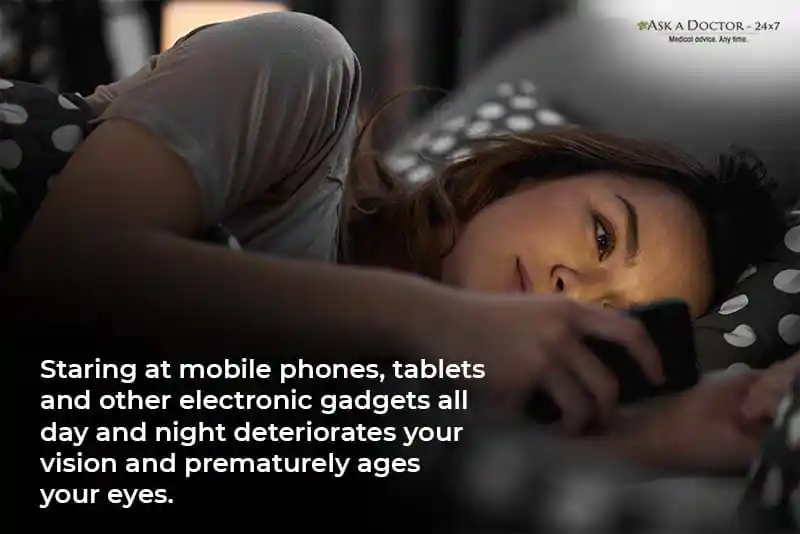
Young people and even kids these days are addicted to electronic devices. In fact, the use of such devices for work, entertainment, and social purposes are now the new normal among individuals of all ages. But do you know gazing at the computer screen and peering at your mobile phone screen for hours takes a toll on your vision? Long-term exposure to the blue light emitted by such electronic gadgets leads to eye strain, which affects your vision, and leads ultimately to poor eyesight at a young age.
Using eyes drops without medical prescription
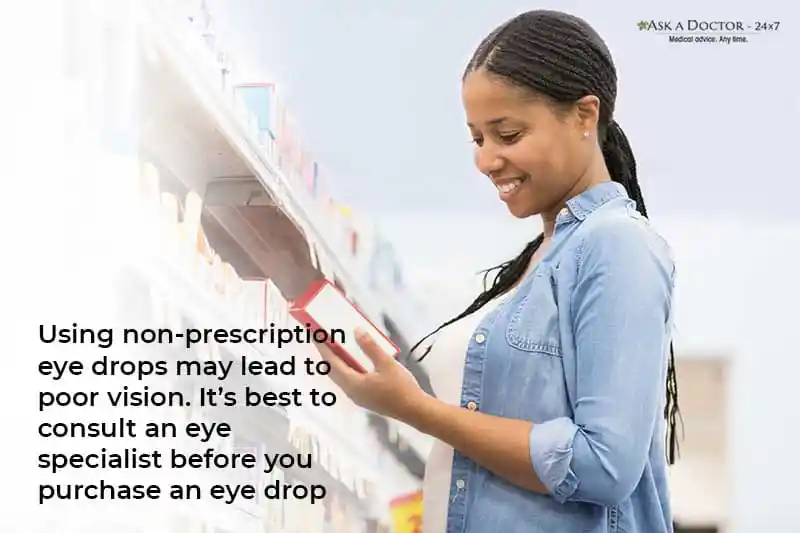
Have you ever felt discomfort in your eyes after using non-prescription eye drops? Use of non-prescription eye drops can bring you only temporary relief; it won’t help solve your actual problem. In fact, they can also cause allergic reactions and can even affect your vision. Ideally, you should ask your ophthalmologist before buying eye drops.
Touching and rubbing your eyes
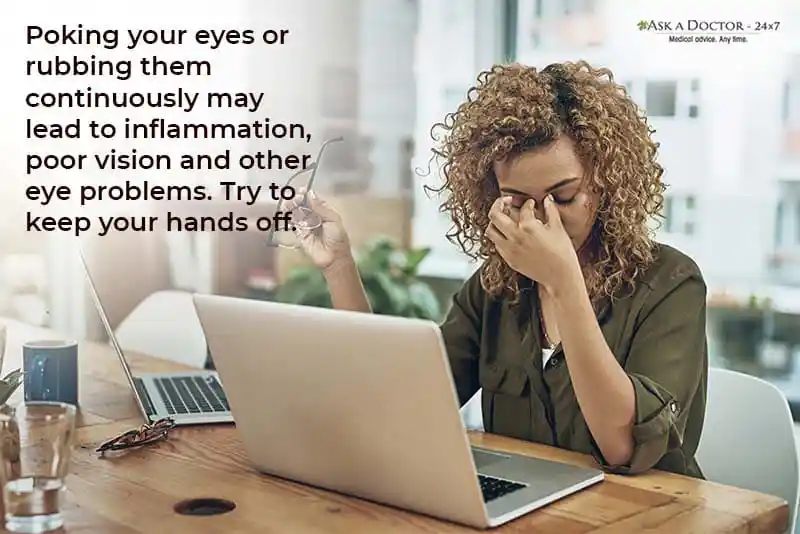
Your eyes are protected by mucous membranes and these moist tissues collect germs and dirt easily. If you keep rubbing your eyes continuously, bacteria can grow here and lead to eye problems. So, try to keep your hands off your eyes as much as possible. Rubbing your itchy eyes too hard leads to inflammation and broken blood vessels.
Forgetting to remove the contact lens
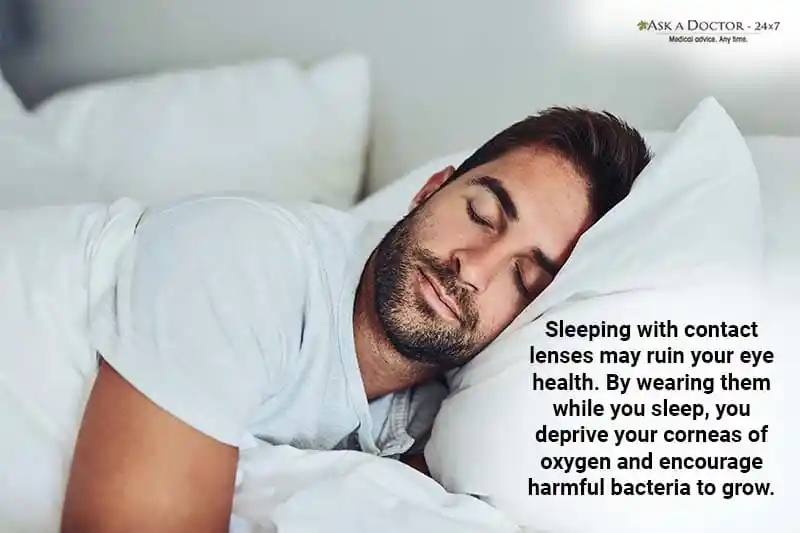
Do you often sleep with your contact lenses on? If you forget to remove them before you sleep, you are depriving your corneas of oxygen. This encourages the growth of harmful bacteria in your eyes. Extended-wear contact lens users are at greater risk of developing corneal ulcers than those who wear their contacts only during daytime.
Not drinking enough water
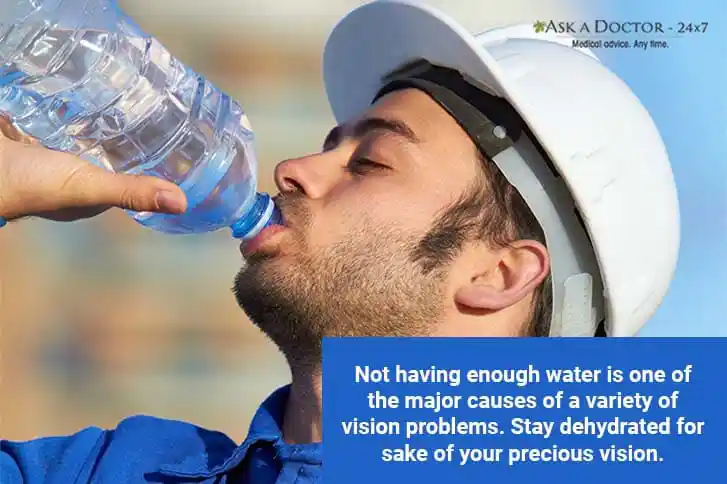
Your hydration status is closely related to the health of your eyes. Dehydration puts you at increased risk of developing dry eye syndrome, cataract, refractive changes, and retinal vascular disease. Dehydration can be prevented by drinking plenty of water through the day.
Using expired drops and eye make-up products
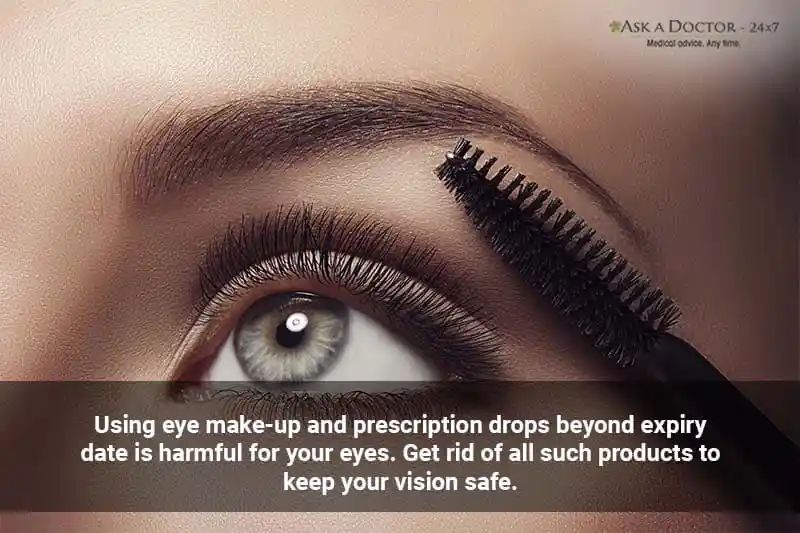
Women often tend to continue to use make-up products beyond the expiry date. Getting rid of eye make-up products that you have been using for more than 3 months is important. Such products are a prime breeding ground for bacteria. In addition, pay close attention to artificial tears and prescription eye drops as they also have expiry dates.
Skipping your annual visit to the eye doctor
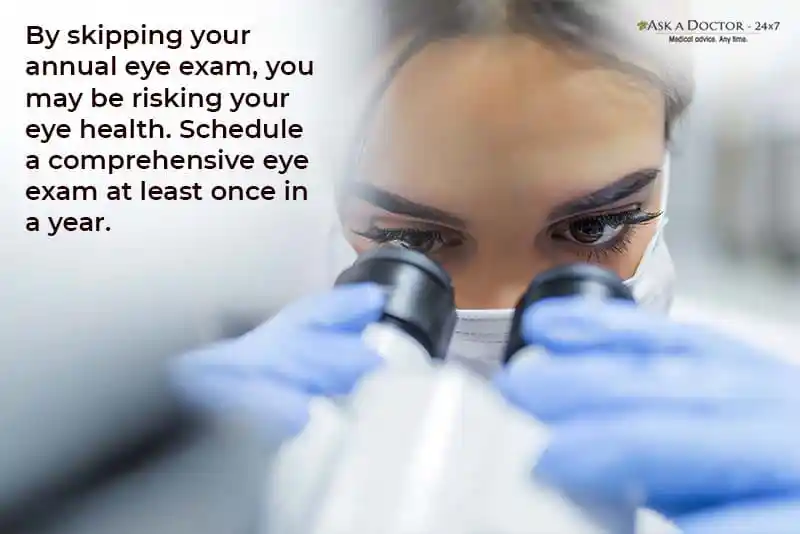
To prevent vision-loss, scheduling a comprehensive annual eye check-up with an ophthalmologist is very important. The purpose is to detect and prevent eye discomfort and vision problems before they start. Based on the prevailing state of your eyes, the doctor will evaluate their health and make recommendations. To know about signs of vision problems it’s best to discuss with your Ophthalmologist.
Protecting your eyes - Things you can do
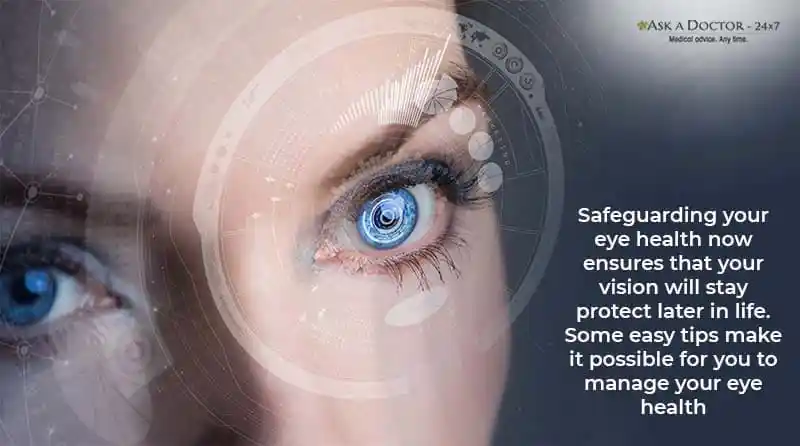
Knowing what you have to do is the first step towards the safety of your precious vision. Keep your eyes healthy for future with these simple tips:
- For every 20 minutes you look at your computer or mobile phone screen, take a 20-second break and look away.
- Avoid poking and rubbing your eyes and always see an eye specialist before buying eye drops.
- Take your contact lenses out before you go to bed.
- Keep your body hydrated by drinking plenty of water every day.
- Reduce the intake of alcohol and caffeine. Also, cut down on your salt intake.
- Avoid late night use of mobile phone.
- Schedule a comprehensive eye check-up at least once a year.
The unhealthy habits discussed above significantly increase the likelihood of poor vision with growing age. All you need to do is to safeguard your eyesight now so that you prevent vision-loss later in life. Also, if you experience vision-related changes, consult online Ophthalmologist.
Ask a Specialist
Recent Questions


